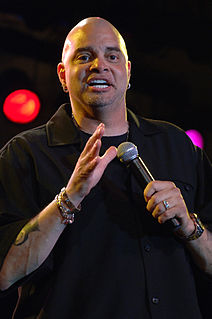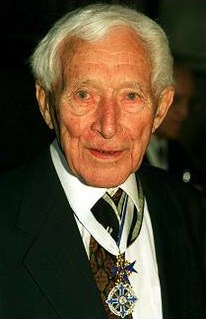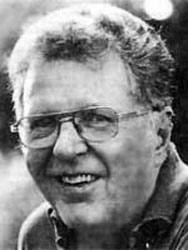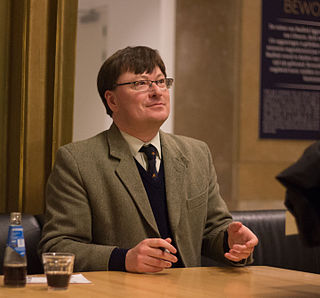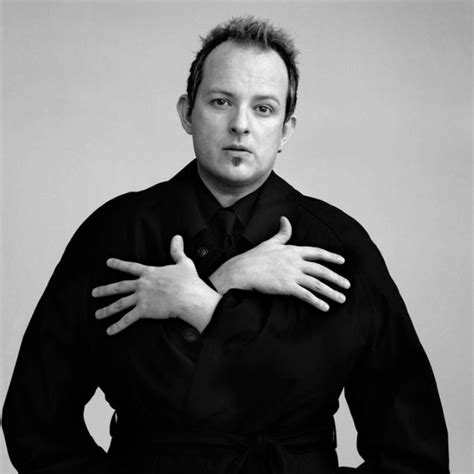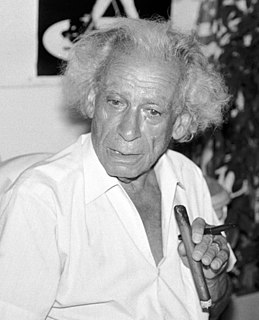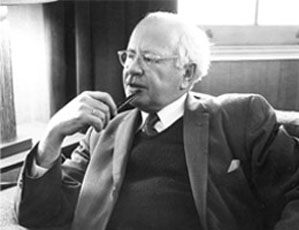Top 370 Augustus Caesar Quotes & Sayings - Page 6
Explore popular Augustus Caesar quotes.
Last updated on April 22, 2025.
If 'Star Wars' wasn't enough to prepare me for a dark future, there was the 'Planet of the Apes' franchise, conveniently repeated for me in Los Angeles on KABC's Channel Seven 3:30 movie. Apes enslaving humans! Mutants with boils and an atom bomb! Ape riots in Century City! They killed baby Caesar's parents!
I cannot favour laws such as that of Idaho, which allows sterilization of 'mental defectives, epileptics, habitual criminals, moral degenerates, and sex perverts.' The last two categories here are very vague . . . The law of Idaho would have justified the sterilization of Socrates, Plato, Julius Caesar, and St. Paul.
The whole idea we have for their chastity is ridiculous. They would have to become numb and invisible to please us. I don't know whether the exploits of Alexander and Caesar really surpass the resolution of a beautiful young woman, bred up in the light and commerce of our society, who still keeps herself whole. There is no doing so hard as not doing.
Fate forces its way to the powerful and violent. With subservient obedience it will assume for years dependency on one individual:Caesar, Alexander, Napoleon, because it loves the elemental human being who grows to resemble it, the intangible element. Sometimes, and these are the most astonishing moments in world history, the thread of fate falls into the hands of a complete nobody but only for a twitching minute.
Personal beauty is then first charming and itself, when it dissatisfies us with any end; when it becomes a story without an end; when it suggests gleams and visions, and not earthly satisfactions; when it makes the beholder feel his unworthiness; when he cannot feel his right to it, though he were Caesar; he cannot feel more right to it than to the firmament and the splendors of a sunset.
He was a foe without hate; a friend without treachery; a soldier without cruelty; a victor without oppression, and a victim without murmuring. He was a public officer without vices; a private citizen without wrong; a neighbor without reproach; a Christian without hypocrisy, and a man without guile. He was a Caesar, without his ambition; Frederick, without his tyranny; Napoleon, without his selfishness, and Washington, without his reward.
Later, when I was at Caesar's Palace, and [Joe and Gil Cates] were trying to get me to have opening acts for the show, they gave me a list of people, and Rosie O'Donnell was one of them. I said, "I don't really need any opening acts. I have funny stuff in the show, and I do a lot of comedy and stuff."
The Tories had the legal right to demand extra meetings of the council but I could decide when they would be held and always called them for Friday afternoons, knowing that three or four of the richer Tories went to the country early and were not prepared to stay in the city beyond lunchtime. I realised that nothing in politics is new when I read in Suetonius's The Twelve Caesars that Julius Caesar pulled the same trick when reactionaries in the senate were making his life difficult.
I said to him, "Shall I tell you where the men are who believe most in themselves? For I can tell you. I know of men who believe in themselves more colossally than Napoleon or Caesar. I know where flames the fixed star of certainty and success. I can guide you to the thrones of the Super-men. The men who really believe in themselves are all in lunatic asylums.
This was the noblest Roman of them all. All the conspirators, save only he,Did that they did in envy of Caesar;He only, in a general honest thoughtAnd common good to all, made one of them. His life was gentle, and the elementsSo mixd in him that Nature might stand upAnd say to all the world, This was a man!
Each work of art excludes the world, concentrates attention on itself. For the time it is the only thing worth doing -to do just that; be it a sonnet, a statue, a landscape, an outline head of Caesar, or an oration. Presently we return to the sight of another that globes itself into a whole as did the first, for example, a beautiful garden; and nothing seems worth doing in life but laying out a garden.
Do not blame Caesar, blame the people of Rome who have so enthusiastically acclaimed and adored him and rejoiced in their loss of freedom and danced in his path and gave him triumphal processions. Blame the people who hail him when he speaks in the Forum of the 'new, wonderful good society' which shall now be Rome, interpreted to mean 'more money, more ease, more security, more living fatly at the expense of the industrious.'
I'd seen all the great entertainers by the time I was 14 or 15. My mother was artistic. My father was a bookmaker, so he had access to all those nightclubs, and he was smitten by certain artists, and we would go see them. We'd see comics like Sid Caesar and Milton Berle - those kind of artists - many of whom I worked with later in my life.
If a little less time was devoted to the translation of letters by Julius Caesar describing Britain 2000 years ago and a little more time was spent on teaching children how to describe (in simple modern English) the method whereby ethylene was converted into polythene in 1933 in the ICI laboratories at Northwich, and to discussing the enormous social changes which have resulted from this discovery, then I believe that we should be training future leaders in this country to face the world of tomorrow far more effectively than we are at the present time.
Christians aren't making a religious claim when they say Jesus rose from the grave. They're making a historical one; they're saying that this thing happened just as surely and really as it happened that Julius Caesar became emperor of Rome. It's the kind of claim that can be thought about and investigated; it can be judged.
Homer, Hesiod, Pythagoras, Plato, and Cicero, just to name a few, all lived in pagan societies. Some of the greatest political and military leaders of all time, such as Alexander the Great, Pericles of Athens, Hannibal of Carthage, and Julius Caesar of Rome, were all pagans, or else living in a pagan society.
Given the final futility of our struggle, is the fleeting jolt of meaning that art gives us valuable? Or is the only value in passing the time as comfortable as possible? What should a story seek to emulate, Augustus? A ringing alarm? A call to arms? A morphine drip? Of course, like all interrogation of the universe, this line of inquiry inevitably reduces us to asking what it means to be human and whether—to borrow a phrase from the angst-encumbered sixteeen-year-olds you no doubt revile—there is a point to it all.
My very first acting job ever, the first time I got paid to be an actress, was in 2001, right between my sophomore and junior year in college, when I was just 19 years old. I got paid $250 every two weeks, 10 shows a week, to be in the Utah Shakespearean Festival. I was Calpurnia in 'Julius Caesar.'
I'm in love with you," he said quietly. "Augustus," I said. "I am," he said. He was staring at me, and I could see the corners of his eyes crinkling. "I'm in love with you, and I'm not in the business of denying myself the simple pleasure of saying true things. I'm in love with you, and I know that love is just a shout into the void, and that oblivion is inevitable, and that we're all doomed and that there will come a day when all our labor has been returned to dust, and I know the sun will swallow the only earth we'll ever have, and I am in love with you.
In every Christian's Heart, there is a cross and a throne, and the Christian is on the throne till he puts himself on the cross; if he refuses the cross, he remains on the throne. Perhaps this is at the bottom of the backsliding and worldliness among Gospel believers today. We want to be saved, but we insist that Christ do all the dying. No cross for us, no dethronement, no dying. We remain king within the little kingdom of man's soul and wear our tinsel crown with all the pride of a caesar; but we doom ourselves to shadows and weakness and spiritual sterility.
I was at Caesar's Palace in Las Vegas, and I was performing at a show there. Jimmy Carter was going to be coming through with his Secret Service detail. The manager pulled me aside, and they didn't want me to shake Jimmy Carter's hand because they were afraid it would make the news if I stole from him.
Families that I lived with a little bit in junior high and quite a bit in high school and college. Just to have a safe, sane space with food and things like that. That's what I needed. And people were really kind and really generous. So I think the world kind of opened up my first years of performing arts, studying classical saxophone with Caesar DiMauro.
For a while I got into the South Pacific theater of World War II. I read "American Caesar" by William Manchester, the biography of General MacArthur. Because of that I ended up reading "Tales of the South Pacific" by James Michener and then because of that reading his "Hawaii." That is what happens.
I did some research on this a couple years ago," Augustus continued. "I was wondering if everybody could be remembered. Like, if we got organized, and assigned a certain number of corpses to each living person, would there be enough living people to remember all the dead people?" "And are there?" "Sure, anyone can name fourteen dead people. But we're disorganized mourners, so a lot of people end up remembering Shakespeare and no one ends up remembering the person he wrote Sonnet Fifty-five about
When I was making these damned pictures, I never knew about film noir. If you had asked me about it then, I probably would have pointed to something like Bill Wellman's The Ox Bow Incident, the best Western I ever saw and very much in the style of film noir I don't care if it's a mystery story, a Western, or the story of Julius Caesar. To me it's the emotion, the lies, the double-cross that defines what kind of drama it is.
We applied a very simple principle: Recognize the facts. Abortion is old as the world. Gay marriage, please - it's older than the world. We had Julius Caesar, Alexander the Great, please. To say it's modern, come on, it's older than we are. It's an objective reality that it exists. For us, not legalizing it would be to torture people needlessly.
The barbarians of Germany had felt, and still dreaded, the arms of the young Caesar; his soldiers were the companions of his victory; the grateful provincials enjoyed the blessings of his reign; but the favourites, who had opposed his elevation, were offended by his virtues; and they justly considered the friend of the people as the enemy of the court.
I was born a Love Goddess. My parents, Caesar and Joanne, always told me that I was a little Goddess and Petite Flower. I was a Petite Flower, and I had all these brothers who were always trying to boss me around. I told them, "No. You must kiss my hand or kiss my feet". That's how I became the Goddess.
Much of my life had been devoted to trying not to cry in front of people who loved me, so I knew what Augustus was doing. You clench your teeth. You look up. You tell yourself that if they see you cry, it will hurt them, and you will be nothing but a Sadness in their lives, and you must not become a mere sadness, so you will not cry, and you say all of this to yourself while looking up at the ceiling, and then you swallow even though your throat does not want to close and you look at the person who loves you and smile.
Caesar [from the Rise of the Planet of the Apes] was brought up with human beings and because of the drug he had pretty much grown up with his whole life, he felt like an outsider, he felt trapped in an ape's body but he didn't really feel like an ape and that was my way into the character. So he's always had this duality playing him from an infant all the way to now as a fifty-five year old ape.
The news might be single-handedly trying to bring about an environmental catastrophe, which it will then report on. Super injunctions are interesting legal weapons really, they don't just gag the press, they gag them from mentioning the existence of the gag. Sport belongs in a news bulletin about as much as a mummified cat's head belongs in a Caesar salad. Combine the "mounting pressure" with the "growing cause" and you've got yourself a "media whirlwind" which you can also refer to.
But Shakespeare never drank coffee. Nor did Julius Caesar, or Socrates. Alexander the Great conquered half the world without even a café latte to perk him up. The pyramids were designed and constructed without a whiff of a sniff of caffeine. Coffee was introduced to Europe only in 1615. The achievements of antiquity are quite enough to cow the modern human, but when you realize that they did it all without caffeine it becomes almost unbearable.
It has been remarked that almost every character which has excited either attention or pity has owed part of its success to merit, and part to a happy concurrence of circumstances in its favor. Had Caesar or Cromwell exchanged countries, the one might have been a sergeant and the other an exciseman.
He who remembers the evils he has undergone, and those that have threatened him, and the slight causes that have changed him from one state to another, prepares himself in that way for future changes and for recognizing his condition. The life of Caesar has no more to show us than our own; an emperor's or an ordinary man's, it is still a life subject to all human accidents.
Do you have a Wish?' he asked, referring to this organization, The Genie Foundation, which is in the business of granting sick kids one wish. 'No' I said. 'I used my Wish pre-Miracle.' 'What'd you do?' I sighed loudly. 'I was thirteen,' I said. 'Not Disney,' he said. I said nothing. 'You did not go to Disney World.' I said nothing. 'HAZEL GRACE!' he shouted. 'You did not use your one dying Wish to go to Disney World with your parents.' 'Also Epcot Center,' I mumbled. 'Oh, my God,' Augustus said. 'I can't believe I had a crush on a girl with such cliché wishes.
If we go on to cast a look at the fate of these World-Historical persons, whose vocation it was to be the agents of the World-Spirit, we shall find it to have been no happy one. They attained no calm enjoyment; their whole life was labour and trouble; their whole nature was nought else but their master—passion. When their object is attained they fall off like empty hulls from the kernel. They die early, like Alexander; they are murdered, like Caesar.
As far as many statistical series that are related to activities of mankind are concerned, the date that divides human history into two equal parts is well within living memory. The world of today is as different from the world I was born in as that world was from Julius Caesar s. I was born in the middle of human history, to date, roughly. Almost as much has happened since I was born as happened before.
It was true that there was no such person as Comrade Oglivy, but a few lines of print and a couple of faked photographs would soon bring him into existence... Comrade Oglivy, who had never existed in the present, now existed in the past, and when once the act of forgery was forgotten, he would exist just as authentically, and upon the same evidence, as Charlemagne or Julius Caesar.
Adolf Hitler is probably the last of the great adventurer-conquerors in the tradition of Alexander, Caesar and Napoleon, and the Third Reich the last of the empires which set out on the path taken earlier by France, Rome and Macedonia. The curtain was rung down on that phase of history, at least, by the sudden invention of the hydrogen bomb, of the ballistic missile and of rockets that can be aimed to hit the moon.
I think there's no question that historians create; they would tell you that, I think. If I'm trying to imagine an imperial Roman position, it's much easier to imagine the poor schlub who's not even sure why he's doing what he's doing than it is to imagine Caesar. At least for me. And I'm intrigued, too, by the position of the poor schlub who *still* finds himself supporting the imperial project.
I basically left Texas with no money. I was making $3.50 working in some mall, so I didn't have a lot of cash. I took $1,000 and headed to California. Along the way I stopped in Vegas because I had always wanted to see Caesar's Palace. So I stopped there and won $2,500 on a slot machine! It was amazing.
I personally find it difficult to accept that there could be anyone on earth insensitive to the comic abilities of Laurel and Hardy, Sid Caesar, Woody Allen, Mel Brooks, or Martin Short. But no matter who the comic entertainer is, there is always at least a minority prepared to say, 'What's all the excitement about? He doesn't seem funny to me.'
I was doing an interview with Charlie Rose and he said, "What do you think about Margaret Thatcher?" - and I had not heard she had died at this point - and he said, "Is there any kind of Shakespearian overtone here?" I said, "Well, actually, Julius Caesar, because ever if a politician was stabbed in the back, it was Mrs. Thatcher, by all her conspiratorial cabinet, which really did just stab her in the back." It's a rather interesting resonance.
The first club that reopened in New Orleans was Caesar's, and they called me immediately and said let's do a regular night with you here. So we started FEMA Fridays. It was the only club open in the city, and a lot of people had a lot of money from Katrina, the checks and stuff, so the joy inside that club - I don't think that'll ever come back.
I eat like a kid. I like Chief Boyardee. Their Ravioli, but they have some stuff I've never seen in the real Italian food world. You ever been in a nice Italian restaurant? Hi how are you? Ummm id like to start with a nice bottle of Chanti and a couple of Caesar Salads and umm I'm going to have the Beef a'ronni. And some Teenage Mutant Ninja Turtles for the lady.
